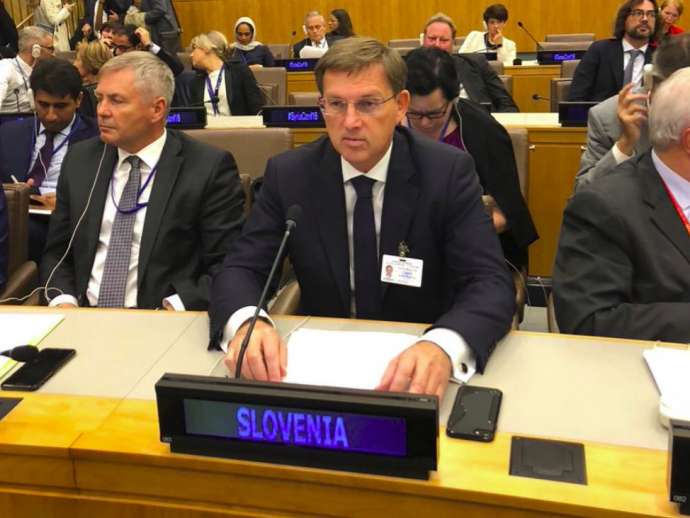STA, 10 December 2018 - Foreign Minister Miro Cerar, speaking after an EU ministerial in Brussels on Monday, said the EU should respond to positive change in the Western Balkans with very concrete acts or else it risked losing the region geo-strategically.
Cerar said positive shifts could be noticed in the Western Balkans at the end of 2018, inspiring hope the region's integration into the EU could continue successfully if countries meet all the criteria.
He believes it is vital for the EU to intensively continue to integrate the region, since countries such as Russia, Turkey and China are interested in it.
"The EU is the best guarantee of Europe's stability. Countries from the region should be integrated as soon as possible, as soon as they have implemented the reforms, or else this part of Europe will be lost to us geo-strategically, which would be a major loss for our European family."
He also pointed to Slovenia's two positive initiatives for the region: an integrated border control management system, which has facilitated a shift towards better coordination in fighting crime, and an agenda for the youth.
Cerar also said the EU should do all in its power so that Serbia and Kosovo reach a comprehensive agreement solving all open issues and having no negative consequences for the broader region.
He expects the EU to decide to launch accession negotiations for Macedonia and Albania in June 2019. He believes this must be done especially if the Macedonia name agreement is implemented.
Tension with Russia in the region
Ukraine, or the escalation of tensions with Russia, was also on the EU foreign ministers' agenda, but despite calls by visiting Ukrainian Foreign Minister Pavlo Klimkin to impose new sanctions on Russia and provide more financial aid to Ukraine, no such decision was taken.
"We did not explicitly discuss introducing new sanctions," said Cerar.
"It's now important to exert constant, decisive and unified pressure on Russia to release the arrested members of the crew and return the ship to Ukraine, and allow the freedom of navigation," he said in reference to the latest escalation of tensions in the Azov Sea.
Cerar believes there should be no need to make the sanctions more severe if Russia acted quickly to eliminate the latest violations of international law. In the opposite case, potential new or additional sanctions would probably be discussed sooner or later.
At the moment the EU hopes for some progress to be made at Tuesday's Berlin meeting of the Normandy contact group, which brings together Russia, Ukraine, Germany and France.
The EU is meanwhile expected to decide at a summit this week whether to extend the sanctions against Russia which expire on 31 January. Cerar believes they will be extended.







